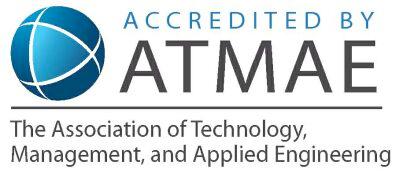Accreditation
Engineering
The College of Engineering is committed to excellence in education and research while maintaining national accreditations for all of its programs.
The Chemical Engineering (BS in Chemical Engineering) program is accredited by the Engineering Accreditation Commission of ABET, under the commission's General Criteria and Program Criteria for Chemical, Biochemical, Biomolecular and Similarly Named Engineering Programs.
The Civil Engineering (BS in Civil Engineering) program is accredited by the Engineering Accreditation Commission of ABET, under the commission's General Criteria and the Program Criteria for Civil and Similarly Named Engineering Programs.
The Electrical Engineering (BS in Electrical Engineering) program is accredited by the Engineering Accreditation Commission of ABET, under the commission's General Criteria and Program Criteria for Electrical, Computer, Communications, Telecommunication(s) and Similarly Named Engineering Programs.
The Mechanical Engineering (BS in Mechanical Engineering) program is accredited by the Engineering Accreditation Commission of ABET, under the commission's General Criteria and Program Criteria for Mechanical and Similarly Named Engineering Programs.
The Petroleum Engineering (BS in Petroleum Engineering) program is accredited by the Engineering Accreditation Commission of ABET, under the commission's General Criteria and Program Criteria for Petroleum and Similarly Named Engineering Programs.
Engineering and Technology Management
 Engineering and Technology Management (BS in Engineering and Technology Management) is accredited by the Association of Technology, Management, and Applied Engineering (ATMAE). For more information on UL's ATMAE accreditation visit the Engineering & Technology Management Accreditation page.
Engineering and Technology Management (BS in Engineering and Technology Management) is accredited by the Association of Technology, Management, and Applied Engineering (ATMAE). For more information on UL's ATMAE accreditation visit the Engineering & Technology Management Accreditation page.
Why is accreditation important?
Accreditation is proof that a collegiate program has met certain standards necessary to produce graduates who are ready to enter their professions. Students who graduate from accredited programs have access to enhanced opportunities in areas such as employment, mobility, and providing a positive impact on society.
ABET is an integral part of each of these areas because it accredits over 3,100 applied science, computing, engineering, and technology programs at more than 660 colleges and universities in 23 countries worldwide. Approximately 85,000 students graduate from ABET-accredited programs each year.
Accreditation is an assurance that the professionals that serve us have a solid educational foundation and are capable of leading the way in innovation, emerging technologies, and in anticipating the welfare and safety needs of the public.
Read more about why accreditation matters.
Information via ABET.
